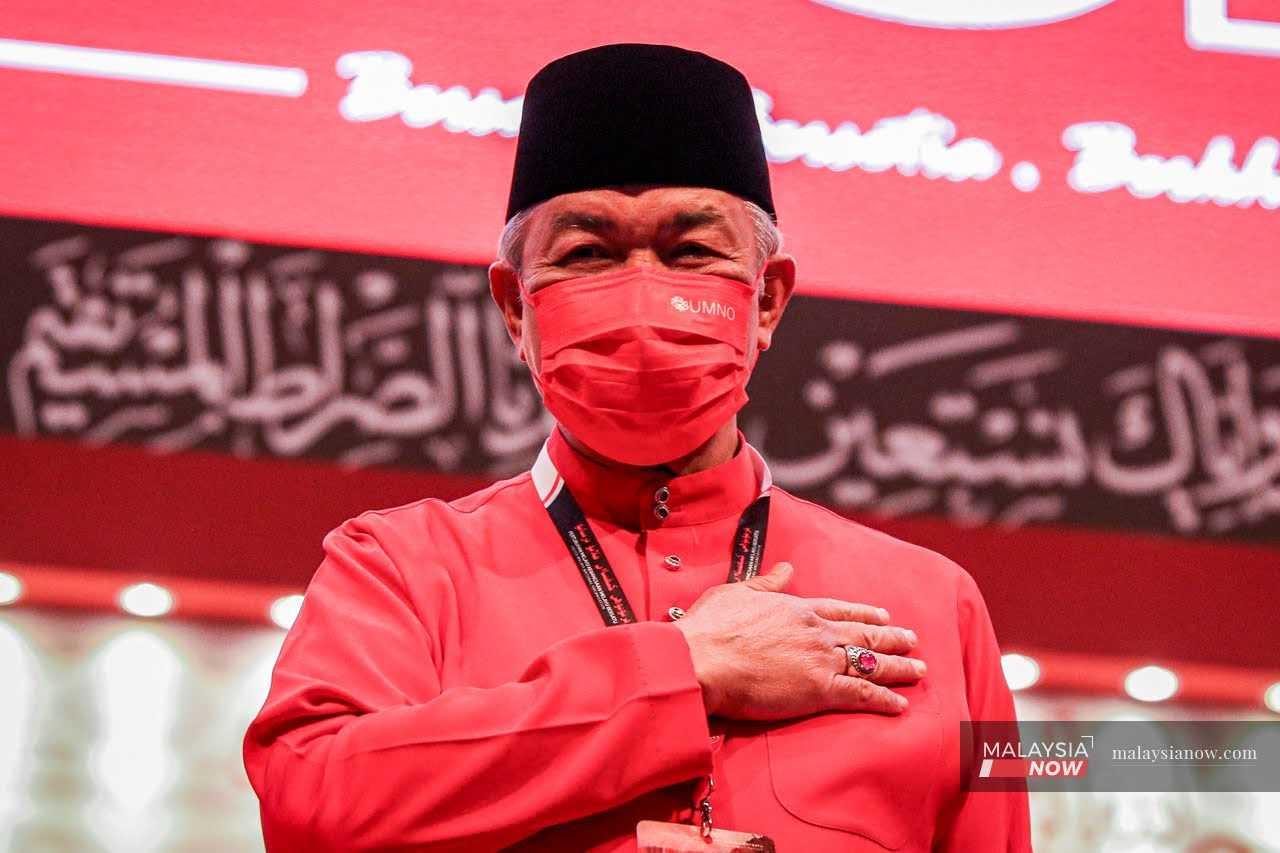Can Zahid hold the fort as Umno president?
His position in the party has come under question following the joining of hands between Umno and Pakatan Harapan.
Just In
Attention is turning to Ahmad Zahid Hamidi's future as the president of Umno following his move to bring the country's biggest Malay party into partnership with Pakatan Harapan (PH), allowing its chairman Anwar Ibrahim the support needed to become prime minister.
The move took many by surprise despite strong speculation of a PH-BN cooperation even before the polls, the inconclusive results of which sparked several days of political deadlock as coalitions and their leaders vied for the numbers needed to take the top office.
This was due in part to Umno's strong stance against working with PH, manifested in its long-time mantra of "No Anwar, no DAP".
While no challenge has been made to the Agong's appointment of Anwar as prime minister, the spotlight remains on Zahid who is seen as the mastermind of the PH-BN alliance.
Umno leaders such as Hishammuddin Hussein and Annuar Musa had objected to the cooperation with PH, which was also resisted by fellow BN components MCA and MIC.
They said BN should remain in the opposition given its failure to obtain the people's mandate at the 15th general election.
But even with the resistance from within his own coalition, some analysts say Zahid's position as Umno president will not be unduly threatened.
Speaking to MalaysiaNow, they said Zahid would only come under real threat if the court cases against him do not end in his favour.
Zahid is facing a string of charges in court, including in the Yayasan Akalbudi case where he has been told to enter his defence against 47 counts of criminal breach of trust, corruption and money laundering involving funds from the charity outfit.
Jeniri Amir, a senior fellow at the National Professors Council, said the Bagan Datuk MP still had strong backing among the Umno grassroots, especially following the move by 130 division heads to voice their support for their president.
He said the Agong's reported decree for the formation of a unity government was also seen as a strong reason for a BN-PH alliance.
"The BN MPs have also given their support for this, so it might become a thing of the past now," he said.
"If he is found guilty in court – that will determine everything."
In terms of BN's poor performance at the Nov 19 polls, though, Jeniri said Zahid should follow the footsteps of his predecessor Najib Razak, who resigned after the coalition's historic loss at the 2018 general election.
"Right now, there are three factions in Umno," he said. "The first faction supports Zahid, the second wants BN to be in the opposition, and the third wants to join Perikatan Nasional."
Oh Ei Sun of the Singapore Institute of International Affairs said Umno's present support for PH might change in the event that a new president is elected at the party polls, which are expected to take place within six months.
He said such a situation could cause the collapse of the government currently led by the PKR president.
"Zahid is expected to defend his position given that those who oppose him have yet to gather enough support," he said.
"If someone like Annuar Musa takes over from Zahid, there might be a shift in support away from Anwar."
But James Chin of Australia's University of Tasmania said even if Zahid was replaced, it would not necessarily mean that BN would immediately withdraw its support for PH.
He said there was a good chance that political parties, including BN, would take a "wait and see" approach before making any decision, given that the current government was formed at the behest of the king.
"Remember that this government was formed under unusual circumstances," he said.
"It came about after discussions among the Malay rulers, so politicians might not be bold enough to withdraw their support as and when they please."
Subscribe to our newsletter
To be updated with all the latest news and analyses daily.
